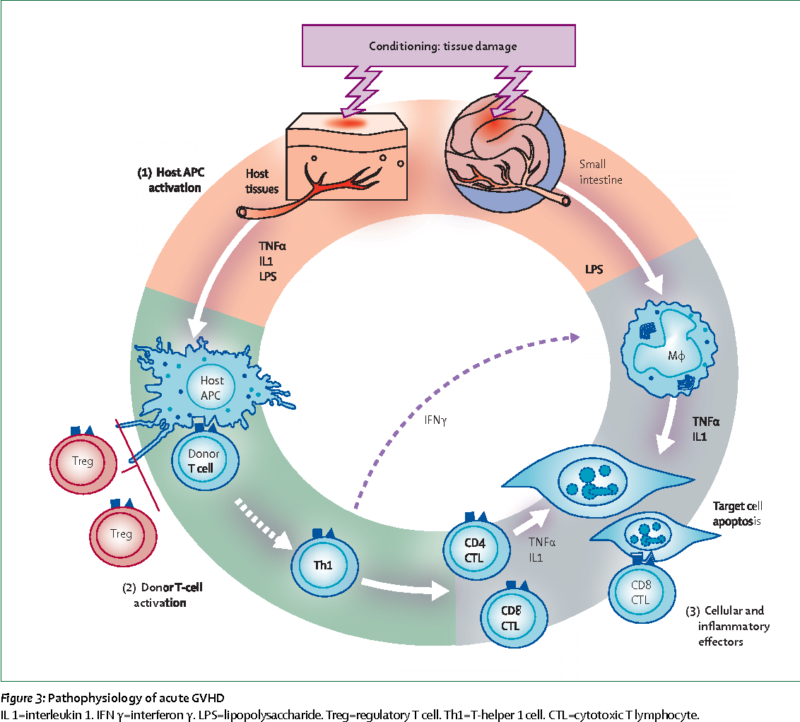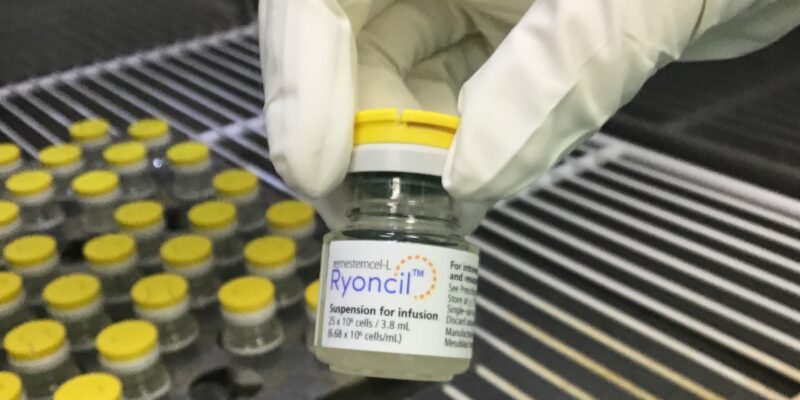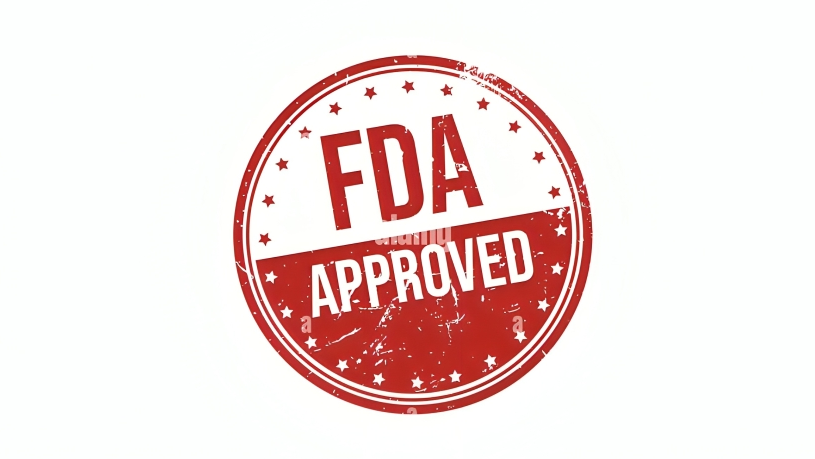On December 18, 2024, FDA approved remestemcel-L-rknd (Ryoncil, Mesoblast, Inc.), an allogeneic bone marrow-derived mesenchymal stromal cell (MSC) therapy, for the treatment of steroid-refractory acute graft-versus-host disease (SR-aGVHD) in pediatric patients aged 2 months and older.
This approval marks Ryoncil as the first FDA-approved MSC therapy, offering a new treatment option for pediatric patients with this severe and challenging condition.
Acute graft-versus-host disease (aGVHD)
Acute graft-versus-host disease (aGVHD) is a common and serious complication following allogeneic stem cell or bone marrow transplantation. It occurs when the donor’s immune cells recognize the recipient’s tissues as foreign and mount an immune response against them. This immune reaction typically affects the skin, liver, and gastrointestinal (GI) tract, leading to symptoms such as a rash, diarrhea, abdominal pain, and liver dysfunction. In severe cases, it can result in organ failure, making timely diagnosis and treatment essential.
Steroid-refractory acute GVHD (SR-aGVHD) is a more severe form of the disease, where patients do not respond to standard first-line treatment with high-dose steroids like methylprednisolone. This form of GVHD is particularly challenging to treat and is associated with worse outcomes. When the condition progresses despite extended steroid use, alternative therapies are needed to control the immune response and reduce inflammation. SR-aGVHD can significantly impact the patient’s quality of life and overall survival, necessitating new treatment options.

The approval of remestemcel-L (Ryoncil), an allogeneic bone marrow-derived mesenchymal stromal cell (MSC) therapy, by the FDA offers a promising new treatment for pediatric patients with steroid-refractory acute GVHD. This therapy works by modulating the immune system, potentially offering relief when traditional therapies fail. As the first FDA-approved MSC therapy, remestemcel-L represents a major advancement in the treatment of SR-aGVHD, providing hope for patients and clinicians alike in managing this difficult condition.
About Ryoncil (remestemcel-L)
Ryoncil (remestemcel-L) is a groundbreaking therapy and the first mesenchymal stromal cell (MSC) product to be approved by the FDA for any medical indication. It is specifically approved for the treatment of pediatric patients aged 2 months and older who are suffering from steroid-refractory acute graft-versus-host disease (SR-aGVHD). SR-aGVHD is a severe and often life-threatening complication following allogeneic stem cell transplantation, with high mortality rates if not adequately treated. This approval marks a significant step in the treatment of SR-aGVHD, offering a new, effective option for children who have not responded to conventional steroid treatments.
In a pivotal Phase 3 clinical trial, which was conducted in multiple centers, 70% of children with SR-aGVHD showed an overall response by Day 28 of treatment with Ryoncil. Notably, 89% of the participants in the trial had high severity disease (Grade C or Grade D), a group with historically poor outcomes. Achieving an overall response in such a severely affected population demonstrates the potential of RYONCIL to improve survival and quality of life in these patients. The ability of RYONCIL to elicit a positive response in a high-risk patient group underscores its significance in managing SR-aGVHD.

Ryoncil works through its immunomodulatory effects, including the inhibition of T cell activation and the suppression of pro-inflammatory cytokine secretion, which play crucial roles in the pathogenesis of GVHD. These mechanisms of action suggest that RYONCIL may also be useful in treating other conditions characterized by excessive inflammation. As research progresses, Ryoncil holds the potential for further applications in the treatment of various autoimmune and inflammatory diseases.
Efficacy of Ryoncil (remestemcel-L)
The efficacy of Ryoncil was evaluated in the MSB-GVHD001 study (NCT02336230), a multicenter, prospective, single-arm clinical trial that included 54 pediatric patients with steroid-refractory acute graft-versus-host disease (SR-aGVHD) following allogeneic hematopoietic stem cell transplantation (HSCT). The study included patients with Grade B to D SR-aGVHD, excluding those with Grade B skin-only disease. The condition was defined as progression of aGVHD within 3 days or lack of improvement after 7 consecutive days of treatment with methylprednisolone (2 mg/kg/day). Patients who had already received second-line aGVHD therapy were excluded. The study’s main efficacy outcomes were the overall response rate (ORR) at Day 28 and the duration of response. At Day 28, the ORR was 70%, with a 30% rate of complete response (CR) and a 41% rate of partial response (PR). This demonstrated that Ryoncil effectively helped manage SR-aGVHD, a life-threatening condition with high mortality rates.
Duration of Response and Safety Profile
The median duration of response for patients was 54 days (ranging from 7 to 159+ days), measured from Day 28 to either disease progression, initiation of new systemic therapy for aGVHD, or death. This highlights the potential of Ryoncil to provide prolonged therapeutic effects for pediatric patients suffering from severe SR-aGVHD. However, the study also reported several common non-laboratory adverse reactions in patients, including viral and bacterial infections, pyrexia, hemorrhage, edema, abdominal pain, and hypertension, with an incidence of ≥20%. These side effects are consistent with those typically observed in immunocompromised patients, particularly those undergoing intensive treatments for SR-aGVHD.
Treatment Regimen
The recommended dosing regimen for Ryoncil is 2 X 10^6 MSC/kg body weight per intravenous infusion, given twice a week for 4 consecutive weeks, resulting in a total of 8 infusions. The infusions should be spaced at least 3 days apart. Treatment may continue beyond the initial 28 days based on the patient’s response. The use of Ryoncil represents a significant advancement in the treatment of steroid-refractory aGVHD, as it is the first FDA-approved MSC therapy for this indication, offering hope for improved survival and quality of life in pediatric patients suffering from this challenging condition. Its immunomodulatory effects, including the inhibition of T-cell activation and reduction of pro-inflammatory cytokines, also suggest potential for future applications in other diseases characterized by excessive inflammation.


